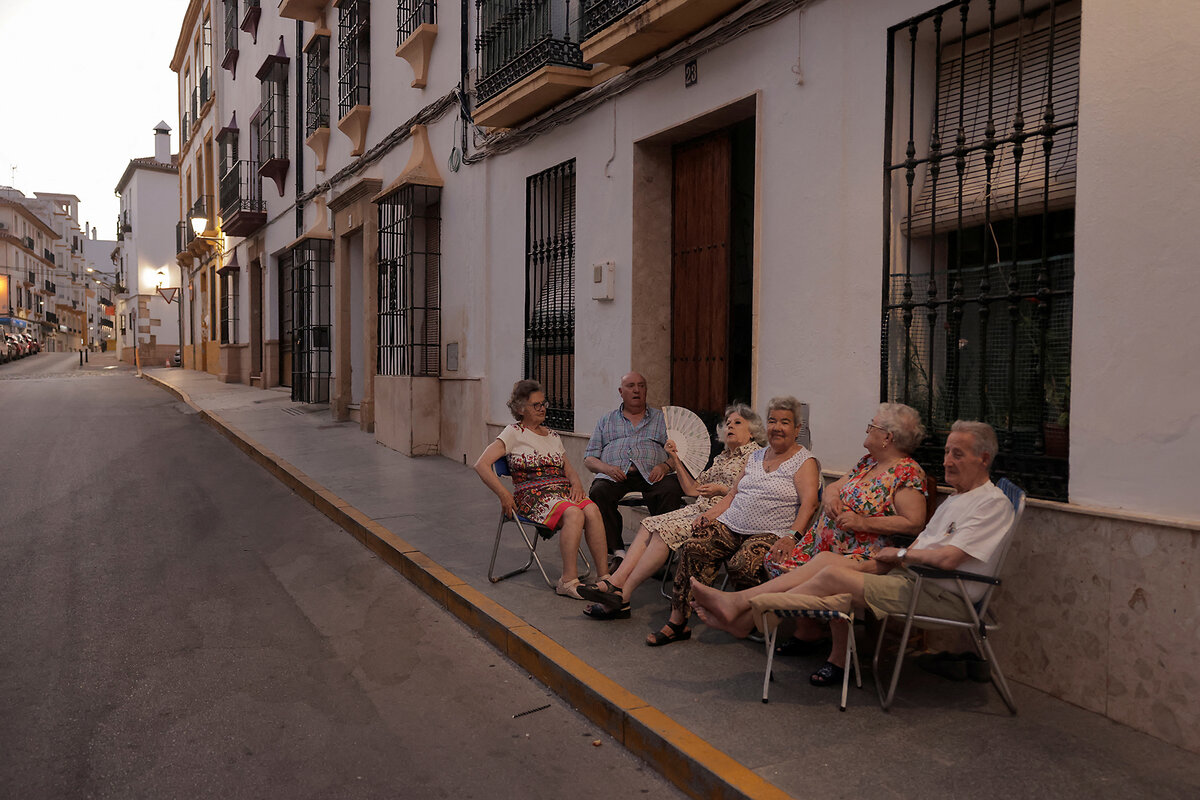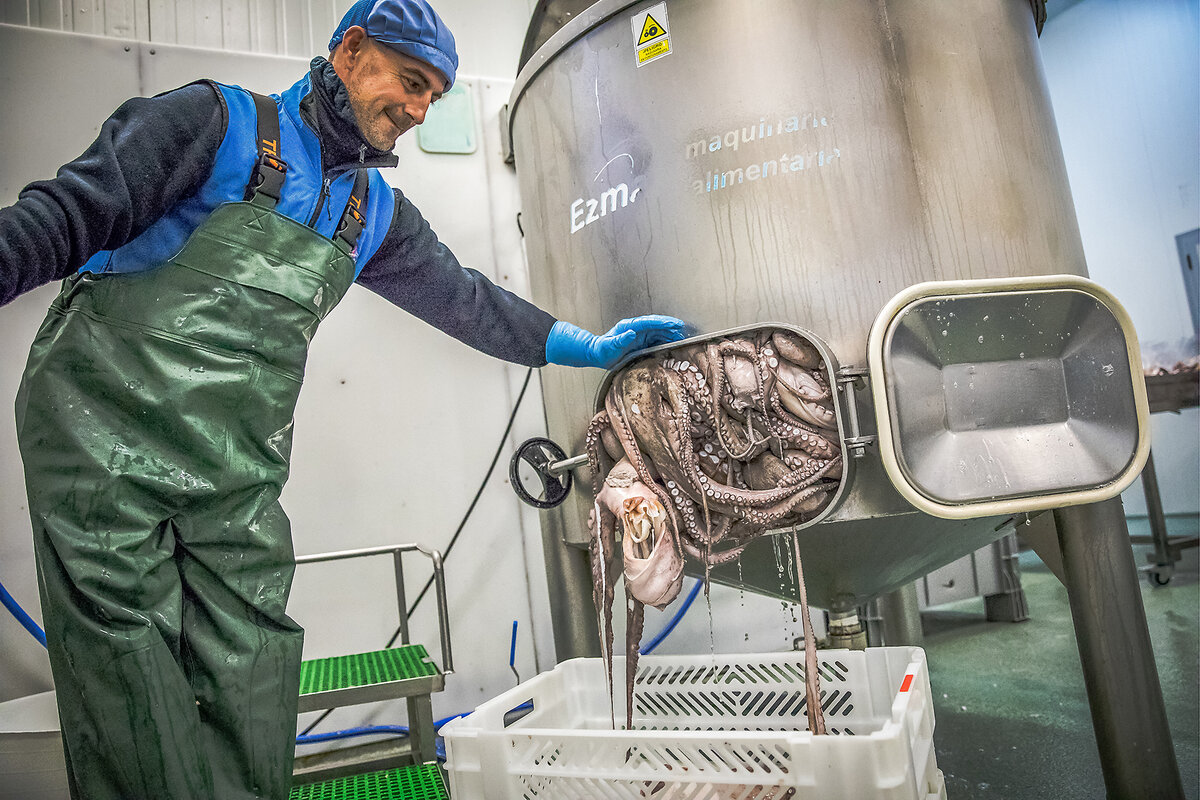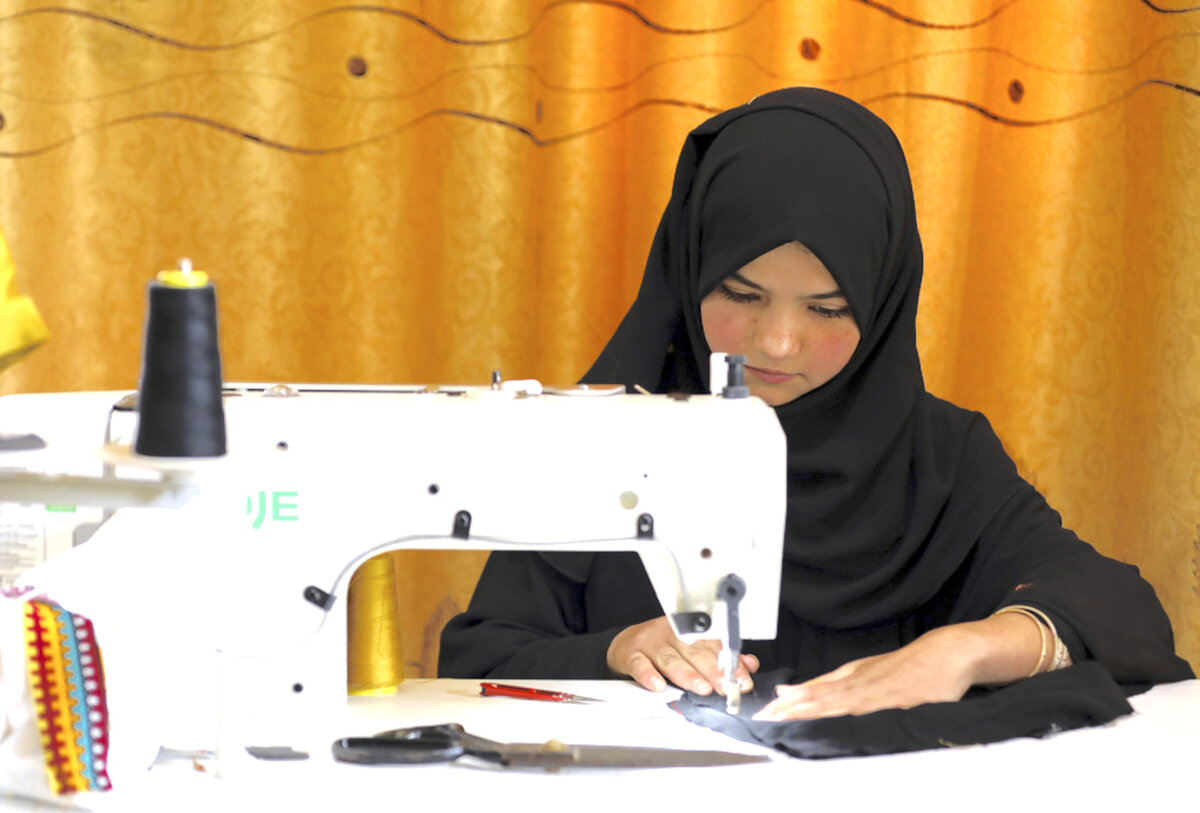Donald Trump’s survival of a would-be assassin’s bullet is a sign of God’s hand at work, many Republicans say – a belief in a divine purpose that raises the existential stakes of the campaign.

Why is Christian Science in our name?
Our name is about honesty. The Monitor is owned by The Christian Science Church, and we’ve always been transparent about that.
The Church publishes the Monitor because it sees good journalism as vital to progress in the world. Since 1908, we’ve aimed “to injure no man, but to bless all mankind,” as our founder, Mary Baker Eddy, put it.
Here, you’ll find award-winning journalism not driven by commercial influences – a news organization that takes seriously its mission to uplift the world by seeking solutions and finding reasons for credible hope.
Explore values journalism About usMonitor Daily Podcast
- Follow us:
- Apple Podcasts
- Spotify
- RSS Feed
- Download
 Amelia Newcomb
Amelia Newcomb
In polarized times, it can be hard to plumb why people hold views that differ from your own. Take a hot topic at the Republican National Convention this week: the intense conviction about a divine purpose in Donald Trump’s political mission and his protection from an attempted assassination.
To some Americans, many of them at the convention, God’s hand is obvious. Others are incredulous. Still others offer gratitude to God that Mr. Trump was not harmed, but are loath to go further.
Thoughtful reporting that is neither credulous nor sneering is at a premium, especially when it comes to religious belief. So take a moment to read Cameron Joseph’s powerful report from the convention today. You’ll hear the voices and historical context, and have the space to make up your mind for yourself.
Already a subscriber? Log in
Help fund Monitor journalism for $11/ month
Monitor journalism changes lives because we open that too-small box that most people think they live in. We believe news can and should expand a sense of identity and possibility beyond narrow conventional expectations.
Our work isn't possible without your support.
Today’s stories
And why we wrote them
( 8 min. read )
Today’s news briefs
Bangladesh clashes: Media reports say 19 more people have died in clashes between police and student protesters attempting to impose a “complete shutdown” of the country, following days of violent confrontations.
Student debt: U.S. President Joe Biden canceled another $1.2 billion in student debt for 35,000 borrowers, bringing the number of people to benefit from debt relief to 4.76 million.
Black sailors exonerated: The U.S. Navy exonerated 258 Black sailors unjustly court-martialed for refusing to follow orders after an explosion in a California port 80 years ago. White sailors were given leave while the Black sailors had to return to handling ammunition without proper training or equipment.
Gaza aid pier: The U.S. military-built pier to carry humanitarian aid to Gaza will be dismantled and brought home. The military said the pier delivered close to 20 million pounds of supplies to Gaza.
( 6 min. read )
As the war grinds on in Gaza, life goes on in next-door Egypt. Some Palestinian residents of Gaza managed to escape the physical conflict by crossing the border, but the war, its worries, and survivor’s guilt are ever present.
( 4 min. read )
You know them as competitors, but what about as savvy business people? With the Olympics kicking off in a week, meet athletes who have embraced the entrepreneurial spirit.
Patterns
( 4 min. read )
Across Europe, leaders are witnessing not only threatening rhetoric but also acts of violence. That’s focusing their attention anew on “turning down the volume” while working to counter a sense of alienation and loss of faith in democratic systems.
( 2 min. read )
The common octopus is considered the most intelligent invertebrate. But the fishing industry threatens to decimate its ranks in Mauritania.
The Monitor's View
( 2 min. read )
On July 2, when the president of Sierra Leone signed a new law banning child marriage, his 8-year-old daughter was at his side. “I have always believed that the future of Sierra Leone is female,” said President Julius Maada Bio.
On July 15, when an all-male legislature in Gambia voted not to end a ban on genital cutting of girls – after first favoring the move – it was because of lawmakers like Gibbi Mballow. “I am a father, and I can’t support such a bill,” he said.
On July 17, something similar was revealed about the fathers of daughters in Afghanistan, an isolated country where the ruling Taliban has barred girls’ education beyond the age of 12. A new survey finds that fathers, especially those whose eldest is a daughter, are very likely to favor rights for girls and women.
The survey, conducted for researchers at the University of Massachusetts Amherst, could upend the approach of the international community to restore full education for Afghan girls. Trying to persuade or threaten the Taliban to change has only hardened their position in the three years since they retook power after the American withdrawal. Instead, researchers suggest that fathers with eldest daughters be “primed” by outside groups to use their authority in a male-dominated society to overturn the education ban.
In the campaign to restore women’s rights in Afghanistan, fathers whose first-born is a girl might be the best ally of activists. “I will be proud of myself that I will fight for women’s rights,” one father said in responding to the survey.
This news may not be new to the Taliban. Many fathers have been detained and beaten for helping their daughters violate the regime’s restrictions on girls. One young Afghan woman told The New Humanitarian that her father is her greatest advocate: “He told me, ‘You must study. You are the futuremaker of your country. You have to help your people, your homeland’.”
One father has even given money for his eldest daughter to start her own school for girls, one that teaches only about Islam, according to the Afghanistan Peace Campaign. While the daughter waits for final approval, she says she hopes the Taliban “will find a way” for all Afghan girls to “finish high school and even go to university, if they want to.”
In many countries, from Africa to Asia, freedom for girls often starts with a father’s love.
A Christian Science Perspective
Each weekday, the Monitor includes one clearly labeled religious article offering spiritual insight on contemporary issues, including the news. The publication – in its various forms – is produced for anyone who cares about the progress of the human endeavor around the world and seeks news reported with compassion, intelligence, and an essentially constructive lens. For many, that caring has religious roots. For many, it does not. The Monitor has always embraced both audiences. The Monitor is owned by a church – The First Church of Christ, Scientist, in Boston – whose founder was concerned with both the state of the world and the quality of available news.
( 4 min. read )
Becoming aware of what we are as the spiritual offspring of God opens the door to greater harmony in our relationships.
Viewfinder
Palestinian children play during the Eid al-Adha holiday, in Gaza City, June 6, 2025.

A look ahead
Thanks for spending time with us today. Tomorrow, we’ll have a final dispatch from the Republican National Convention and report on upcoming Venezuelan elections. And just in time for the weekend, we’ll have an essay about finding light and inspiration in Henry David Thoreau’s “Walden.”








